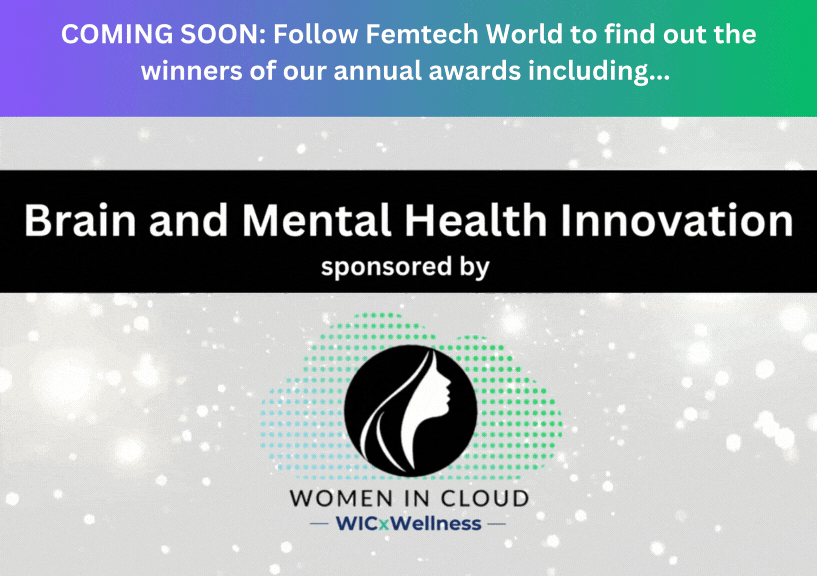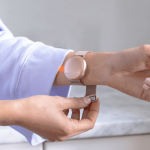Opinion
MPs vote to decriminalise self-managed abortion

MPs have voted to scrap criminal penalties for women in England and Wales who end their own pregnancies, following a string of controversial cases in recent years.
Labour MP Tonia Antoniazzi’s amendment to the Crime and Policing Bill was backed in the Commons by 379 votes to 137, a majority of 242. The proposal would remove the threat of “investigation, arrest, prosecution or imprisonment” for any woman who acts in relation to her own pregnancy, by taking out sections of the 1861 Offences Against the Person Act.
Antoniazzi, who represents Gower, said she was moved to advocate for change after seeing women investigated by police over suspected illegal abortions.
Under current law, abortion remains a criminal offence except when performed by authorised providers up to 24 weeks of pregnancy. It is permitted later only in limited circumstances, such as when the mother’s life is at risk or if the child would be born with a severe disability. It is also legal to take prescribed medication at home if less than 10 weeks pregnant.
Antoniazzi told MPs the amendment would not alter current abortion procedures.
The current 24-week limit would remain, abortions would still require the approval and signatures of two doctors, and healthcare professionals acting outside the law and abusive partners using violence or poisoning to end a pregnancy would still be criminalised, as they are now,” she said.
As is usual with issues such as abortion, MPs were granted a free vote, allowing them to vote according to personal conviction rather than party lines.
Justice minister Alex Davies-Jones said earlier this month that the government was neutral on decriminalisation and considered it a matter for Parliament.
Concluding Tuesday’s debate, she suggested ministers would help ensure the law change could be properly implemented if MPs approved it.
She told the Commons: “If it is the will of Parliament that the law should change, the government in fulfilling its duty to ensure that the legislation is legally robust and workable will work closely with my honourable friends to ensure that their amendments accurately reflect their intentions and the will of Parliament, and are coherent with the statute book.”
Although the government did not take a position, several high-profile cabinet ministers supported the amendment in the free vote.
They included energy secretary Ed Miliband, chancellor of the Duchy of Lancaster Pat McFadden, work and pensions secretary Liz Kendall, defence secretary John Healey, transport secretary Heidi Alexander and environment secretary Steve Reed.
Efforts to change the law to protect women from prosecution follow repeated calls to repeal sections of the 19th-century legislation, after abortion was decriminalised in Northern Ireland in 2019.
The measures still need to complete their legislative journey through both the Commons and the Lords before becoming law.
The British Pregnancy Advisory Service welcomed the step.
Heidi Stewart, chief executive of the charity, said: “This is a landmark moment for women’s rights in this country and the most significant change to our abortion law since the 1967 Abortion Act was passed.”
“There will be no more women investigated after enduring a miscarriage, no more women dragged from their hospital beds to the back of a police van, no more women separated from their children because of our archaic abortion law,” she said.
The Society for the Protection of Unborn Children said it was “horrified” by the result.
Alithea Williams of SPUC said: “If this clause becomes law, a woman who aborts her baby at any point in pregnancy, even moments before birth, would not be committing a criminal offence.
“Our already liberal abortion law allows an estimated 300,000 babies a year to be killed. Now, even the very limited protection afforded by the law is being stripped away,” she added.
Wellness
Thriving through the ups and downs: A guide to women’s mental health

By Naomi Magnus, psychotherapist and founder at North London Therapy
Women’s health is closely linked to our biology, hormones, and the way our brains are wired, all of which shape our life experiences.
From the teen years right through to adulthood, hormonal ups and downs can affect mood, thinking, and emotional resilience in ways that are uniquely female.
Oestrogen and progesterone, for instance, don’t just influence fertility – they also play a key role in regulating neurotransmitters like serotonin and dopamine, which affect mood and anxiety.
In your twenties, when careers, relationships, and life choices are all coming together, it’s perfectly normal to feel anxious or low at times.
Anxiety disorders can often be connected to women’s hormonal and neurological differences. Recognising this can be really reassuring – anxiety can simply be a reflection of a complex, finely tuned system.
A woman’s menstrual cycle can have a big impact on energy, focus, and mood throughout their life, yet many women aren’t taught to track or anticipate these changes.
Later on, life events like pregnancy, postpartum shifts, and perimenopause bring even bigger hormonal swings, which can trigger mood changes, brain fog, or longer-term mental health challenges.
Schools have a crucial role to play in helping young women understand their bodies and mental health.
While the current UK national curriculum covers basic reproductive biology and puberty, it often misses the full picture of hormonal cycles, mental health, and the connection between the two.
Comprehensive education should include tracking menstrual cycles, recognising mood and energy patterns, understanding stress and anxiety triggers, and helping young girls to develop healthy coping strategies.
Teaching these skills early on equips girls with self-awareness, confidence, and the tools to manage their physical and emotional wellbeing throughout life.
Menopause is another life stage that brings significant hormonal changes, which can affect mental health.
As oestrogen and progesterone decline, many women notice mood swings, anxiety, low energy, and brain fog.

Naomi Magnus
Lifestyle adjustments can help – regular exercise, a balanced diet rich in omega-3s and whole foods, good sleep hygiene, and mindfulness or meditation practices can all support mood and cognitive function.
Therapy, such as cognitive behavioural therapy (CBT) or counselling, is effective for managing anxiety or low mood.
For some, hormone replacement therapy (HRT) may be recommended by a GP or specialist to stabilise hormones and alleviate both physical and psychological symptoms.
Women – at any age – can help themselves to feel better when hormone changes strike.
I am an advocate for mindfulness, good sleep, gentle exercise, socialising, and tracking your cycle alongside your mood.
Technology is stepping up – there are some amazing apps that make it easier to understand how your mental health and hormones interact.
It’s also worth acknowledging that times are tough globally – economic uncertainty, climate anxiety, and social pressures can all take their toll on our mental health.
While we can’t control everything around us, getting to know our own bodies and how we respond to stress can make a real difference.
By tuning into our cycles, moods, and energy levels, we can better anticipate challenging days and create a sense of calm amidst the chaos.
Understanding that women’s brains and mental health respond differently across life stages is really important.
Women should approach mental health proactively – because thriving isn’t just about surviving, it’s about knowing your mind and body inside out.
News
Women’s health is not niche: It’s the future of healthcare

By Melissa Wallace, CEO & Founding Partner of Fierce Foundry
Just a few years ago, so many conversations around women’s health in the U.S. felt like they were still just making the case for why investment mattered. Panels, white papers, TED-style talks pointed to under-funding, data gaps, structural bias. But something has shifted. Across healthcare and investment communities, the tone now is more about when, not if, and increasingly how.
A compelling indicator of this shift arrived in early August, when the Gates Foundation announced a $2.5 billion commitment to advance women’s health research and development through 2030, fixing its spotlight on long-neglected areas such as menopause, heavy menstrual bleeding and endometriosis. (Reuters) Paired with this, industry commentary emphasises that med-tech devices specifically for women are gaining investor interest at a notable pace. (Medical Device Network)
This sort of capital commitment and investor signal was rare even just a couple of years ago, it underscores a rising belief that women’s health is not just a moral imperative, but a strong market opportunity with measurable returns.
The momentum is palpable here in the U.S.: deficits in research and care persist (for example, women’s health startups captured a record ~$2.6 billion in venture funding in 2024, up from ~$1.7 billion in 2023). (BioPharmadive) And while the sector remains under‐capitalized overall (some reports suggest only ~2% of healthcare investment goes to women’s‐health solutions) (Morgan Lewis) the trajectory is unmistakable.
What’s causing the flip?
- From niche to mainstream: The definition of “women’s health” is expanding in the U.S. It’s no longer just fertility or gynecology, it now encompasses perimenopause, longevity, autoimmune conditions, cardiovascular issues in women. “We’re finally seeing women’s health shift from the under-invested side-line to an innovation category that VCs believe can outperform,” said Raysa Bousleiman, Senior VP for Investor Coverage at Silicon Valley Bank.
- Data gaps turning into data opportunity: For decades, women’s biology, hormonal cycles, mid-life transitions were under-researched. That created both risk and opportunity. Today, tools such as AI, advanced imaging and genomics are closing those gaps. One insightful analysis argued that AI could fundamentally reshape women’s health by tackling “data deserts, bias, and gaps.” (World Economic Forum) Investors increasingly see that the business case is real, not just the moral one. The report “The WHAM Report” frames women’s health investment as “a pathway to societal impact, economic resilience and sustainable growth.”(Wham Now)
- Exit and scale signals: The proof of performance is emerging. In the U.S., scale players are projecting women’s health lines hitting milestone revenues. In Europe, a company raised hundreds of millions targeting ovarian cancer and perimenopause. These “top-of-the-chain” moves may feel distant to early-stage founders, but they shift perception fundamentally: women’s health is not a boutique play, it’s investable, scalable, strategic.
- Shift in investor mindset: No longer is women’s health simply a “good cause”; it’s a growth category. Fund managers are citing track records, asking to raise dedicated funds, deploying dollars not just to be socially responsible but to achieve outsized returns. That shift changes how founders engage, what boards expect, what exits look like.
Still, we must be candid: founders in this space continue to face headwinds. For example, one founder, Valentina Milanova of Daye, shared the frustrating anecdote: “I’ve had investors ask me why our tampons have string on them.” That kind of query signals bias, not just about product design, but about the perceived seriousness of the category. Her pragmatic advice to early-stage founders: consider grant funding, especially in Europe, as founder-friendly capital that can help bridge to private investment.
What does this all mean for U.S. organizations and the broader ecosystem?
For healthcare organizations: The signals are clear. Women’s health is moving from underserved niche to strategic priority. In the U.S., institutions and health systems that double-down here now may gain first-mover advantage, whether by building multidisciplinary women’s health centres, partnering with innovative startups, or harnessing data insights tailored for women. The business case is sharper than ever: women make up 51 % of the population, drive ~80 % of healthcare decisions, and still face care gaps. (Wham Now)
For investors and founders: This is a moment. The conversation is no longer simply “why invest in women’s health” but “how to invest in women’s health at scale”. Founders should be ready to show performance, not just potential. Investors should demand sex-disaggregated data, metrics beyond fertility, and a broader view of women’s life-course care. The heavy lifting remains but it’s now being valued.
For the market at large: The under-served areas are many perimenopause, mid-life wellness, autoimmune conditions in women, hair loss, anorectal care, longevity for women, all of which were once sidelined. That white space, combined with rising capital and broader recognition, fuels a powerful market dynamic.
The story of women’s health is being rewritten. Where once the conversation focused on why, today it increasingly focuses on how. The category is shifting toward performance, scale, credibility. For healthcare organizations willing to commit whether via partnerships, internal innovation or capital deployment, this is not just a mission. It’s a strategic opportunity. And the message is resonating: women’s health is not an afterthought anymore. It’s one of the fastest-growing, most under-leveraged frontiers in healthcare.
Wellness
Listening to pain: What eight women taught me about the state of women’s health in the UK

By Ruby Raut, founder & CEO, WUKA
It’s Ruby here, founder of WUKA and, like many of you, someone who’s been dismissed, doubted, and left waiting far too long when it comes to menstrual health.
Last week, I spoke at an event hosted by the Menstrual Health Project. It wasn’t just another panel or pitch session; it was a wake-up call.
The room was filled with GPs, pharmacists, educators, innovators, and women who have lived the daily reality of conditions like endometriosis, PCOS, PMDD, and premature ovarian insufficiency.
We weren’t there to celebrate solutions. We were there to listen. And what we heard broke us open.
The Stories Behind the Statistics
I walked out of that room with one page of notes — not data, not theory, but pain in ink.
The stories were raw and repetitive. Women told us of:
- 14 years of seeking help and getting none.
- 3 decades of living in pain.
- Being laughed at for wanting to come off contraception.
- Being told to “just go on the pill.”
- Waiting for a laparoscopy since 2015, and still waiting in 2025.
- Being asked to gain weight to get a period or lose weight to manage PCOS.
- Being offered pregnancy as a “solution.”
- Losing jobs because of endometriosis.
This is not an isolated list of frustrations. It’s a mirror reflecting the state of women’s health in the UK today.
Behind every statistic, there’s a woman who has rearranged her life around pain, missed promotions, cancelled plans, and lost trust in her own body.

The System Is Failing Us, and We Know It
Hearing these stories, I couldn’t help but think of it like a leaking roof.
You notice the drip, you report it, but you’re told it’s nothing serious, to just wait it out.
Days turn into months, months into years. By the time someone finally takes a proper look, the ceiling has collapsed.
That’s what living with an untreated women’s health condition feels like, small symptoms dismissed until they become impossible to ignore. That’s what our healthcare system is doing to women.
We don’t have a lack of data, we have a lack of listening.
When women describe pain, the system translates it into exaggeration. When they ask for options, they get the same recycled advice: “Go on the pill.”
The medical model still treats menstruation as a niche, not a vital sign.
And that’s why listening matters. Because until we treat lived experience as evidence, we’ll keep designing systems that ignore reality.
Learning from Lived Experience
As founders, practitioners, and advocates, we often talk about innovation, new tech, better diagnostics, smarter apps. But innovation without empathy is just noise.
Listening to eight women share their stories of endometriosis, PCOS, and PMDD reminded me of something fundamental: we can’t fix what we refuse to feel.
It takes courage to speak about periods, pain, infertility, and loss in a room full of professionals.
Yet these women did, not because they wanted sympathy, but because they wanted change.
Their words carried a collective message: “We don’t need to be fixed, we need to be heard.”
The Change We Need
So, what would change actually look like?
- Menstrual health education in medical schools.
Not as a module, but as a mainstream subject. Every GP, nurse, and specialist should understand menstrual health the way they understand blood pressure. - Inclusive menopause and menstrual support, for all ages, all bodies.
Menstrual and menopausal health should not be separate conversations. Hormonal health spans a lifetime. - Accessible care at every level.
Support should start at the local pharmacy, not five years into a diagnosis journey. Pharmacists and primary care teams can be the first line of empathy and intervention. - Private and public health insurance that covers menstrual conditions.
No woman should have to choose between financial stability and pain management. - Policy change that protects and respects women’s health.
We need national recognition that menstrual health is not a luxury — it’s a basic human right.
What Listening Really Means
Listening is not passive. It’s radical.
It means staying in the discomfort of someone else’s pain long enough to see the system that caused it. It means asking, not assuming. It means holding space before we offer solutions.
The Menstrual Health Project event reminded me that we can’t rely on numbers alone. Data gives us proof. Stories give us purpose. And when you combine both, that’s when transformation begins.

Why WUKA Cares
At WUKA, we started with period underwear, but what we’re really building is period equity.
Every conversation, campaign, and product we create is rooted in one belief: women deserve better.
Better care. Better education. Better respect.
Because menstrual health is not a side issue. It’s a social justice issue. It’s about the right to live without shame, without silence, and without suffering that’s dismissed as “normal.”
If you’re someone living with any of this, endometriosis, PCOS, PMDD, or anything that makes you feel unseen, I see you. You are not alone. You deserve better, and we will keep fighting for you.
Let’s listen louder. Let’s care deeper. Let’s make menstrual health mainstream.
With you always,
Ruby x
Founder & CEO, WUKA
P.S. Check out the incredible work of the Menstrual Health Project. They’re not just raising awareness, they’re rebuilding the narrative.
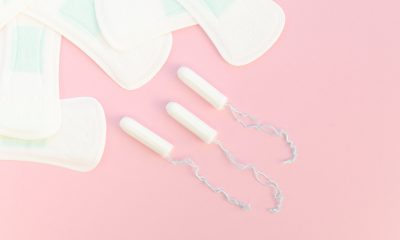
 News2 weeks ago
News2 weeks agoDozens of women report suffering painful burns after using Always sanitary towels
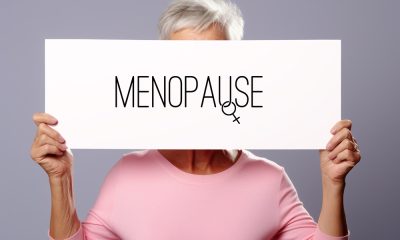
 Ageing4 weeks ago
Ageing4 weeks agoFDA plans to revise black box warning on menopause hormone therapies

 News2 weeks ago
News2 weeks agoWomen’s health innovations recognised in TIME’s Best Inventions 2025

 News3 weeks ago
News3 weeks agoAI-powered women’s health companion Nexus launches in UK
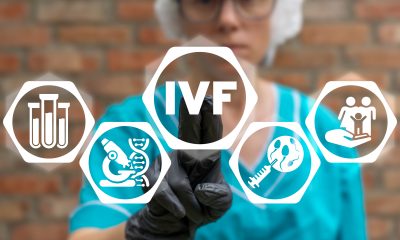
 Hormonal health4 weeks ago
Hormonal health4 weeks agoScientists turn human skin cells into eggs in IVF breakthrough

 Wellness2 weeks ago
Wellness2 weeks agoCutting through the noise in femtech – key takeaways from Women’s Health Week 2025
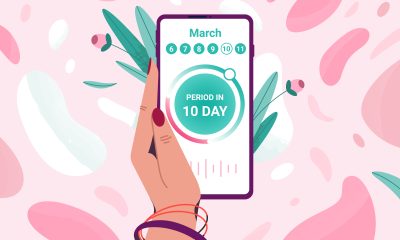
 Diagnosis3 weeks ago
Diagnosis3 weeks agoMenstrual cycle affects women’s reaction time, study finds

 News4 weeks ago
News4 weeks agoDaily pill could delay menopause ‘by years,’ study finds

















